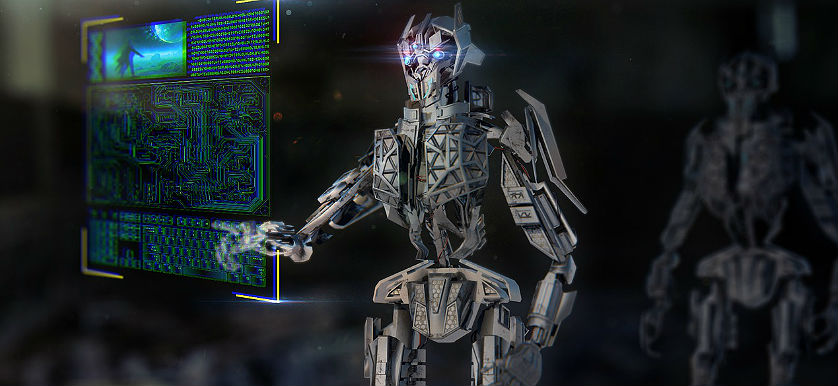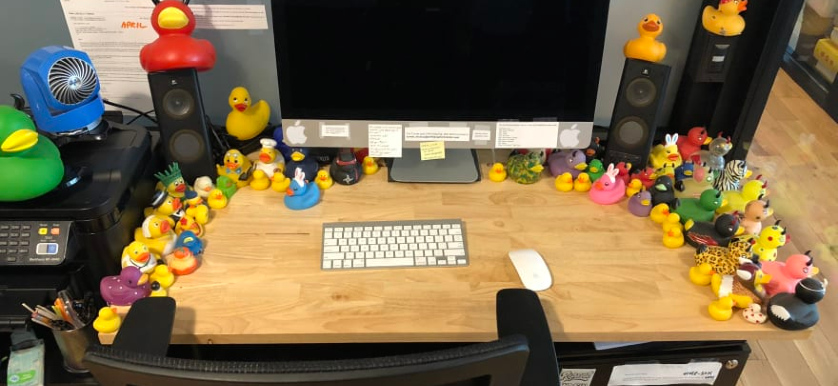Learning throughout one’s lifetime: from ABCs Reading to C++ Coding

The inescapable fact of the 21st century is that programming skills are becoming ever more important, quickly turning into the core competency for a vast majority of workers.
Get the opportunity to grow your influence by giving your products or services prime exposure with Performance Magazine.
If you are interested in advertising with Performance Magazine, leave your address below.

The inescapable fact of the 21st century is that programming skills are becoming ever more important, quickly turning into the core competency for a vast majority of workers.

As artificial intelligence continues to expand its role in modern commerce, there are three aspects of AI that are proving particularly important. In this article, we will examine process automation, cognitive insight, and cognitive engagement, and how they relate to the world of business.

Join us in our journey to interview some of the most extraordinary individuals that continue to make The KPI Institute a role-model for others to follow. In today’s edition, we will be featuring July’s Employee of the Month, Alexandru Podariu.
1. What is your role at The KPI Institute and what makes it special?
I am currently employed as the Head of IT, at The KPI Institute. My day-to-day work includes anything and everything that has to do with ensuring our digital footprint, services, and websites are updated and run smoothly.
I enjoy my role here because we work on extremely eclectic projects, which always provide me with something new to achieve or put together. Things never get boring working in IT here.
2. What do you find most challenging at The KPI Institute?
Since we tackle so many different projects, there’s a never-ending source of new things to do every day. It would be nice sometimes to be able to plan tasks in advance, but I cannot complain too much – the constant shift in tasks keeps me on my toes.
What’s more, due to this, I get to expand my knowledge and use many different tools, gadgets, instruments, and technologies in various work endeavours that I get assigned to.
3. What would be the three main career lessons that you have learnt thus far?
4. If you could interview one person, either from the past or present, who would it be and why?
I think the person I’d be most inclined to talk to would be Elon Musk. The man has no chill. The man perseveres, trudges on, and never gives up regardless of how many naysayers he encounters.
In my opinion, that level of determination is incredible, and I’d like to know how he managed to inculcate in himself such an attitude.

Over the last decade, Robotic Process Automation (RPA) has been evolving silently and is now utilized for enterprise-scale deployments. RPA has revolutionized the way large organizations operate over the last few years, helping organizations administer their IT support processes, remote infrastructure management, workflow processes, and business processes.

Imagine that you are at work and you’re faced with a problem which you think you cannot solve, and all your colleagues are too busy to help out. Does this situation sound familiar? Have you ever tried asking for help from a rubber duck? If you haven’t, you should probably take a page out of an IT specialist’s book, as they use this method quite often.
The ‘Rubber Duck Debugging’ is an autonomous problem-solving technique, mentioned by authors Andrew Hunt and David Thomas in their book, The Pragmatic Programmer: From Journeyman to Master. The term refers to the way in which a programmer explains his code-related problems to a rubber duck. This process has the following steps:
While this may seem like a mere joke – and to a certain degree, the duck part is more or less for fun, there’s some truth to this. The point of this process is to force the user to rethink their approach and explain it to someone, who hasn’t the faintest, what their challenge entails.
By compelling yourself to break down the issue at hand in its simplest of forms, the inherent logic is that you will find what’s causing you to hit a rut.
Another way in which you can retrace your thought process is by thinking out loud. Researchers have found 2 major advantages for thinking aloud:
When you start talking aloud or writing about your problems, you drive yourself to sequence all of the information you’re thinking about, which may enable you to gain new insight into your issues. This may also give you a better overall perspective over the matter.
This technique is most effective when you assume that your listener has little knowledge of your field or problem. When the other person has no familiarity with the topic, you start explaining everything in great detail, in order to give them a better understanding over the entire matter.
By describing the basics and then building up the concepts, your understanding of the subject deepens as well. You immediately start thinking about what you already know, because you are focused on helping the other party understand the topic.

While many of us were warned by our parents, while growing up, to not talk to ourselves or our toys, as this may come off as peculiar, it would seem that in many industries, the day-to-day reality of things is changing old customs and worldviews.
This doesn’t mean you should go out of your way to cease talking to other people; simply put, if you don’t have someone to talk to and you’re in a rut, a rubber duck may come in handy:
It is a fact that programmers are usually very good at solving problems, therefore it shouldn’t come as a surprise that they invented and put into practice a useful & funny way to figure out solutions. With that in mind, the ‘Rubber Duck Debugging’ technique could be useful not only in the field of IT, but in other functional areas as well.
By having a little yellow friend at your side, you will be able to work independently more often, and you will not have to rely on your co-workers that much. You will end up finding out that you know much more than you had thought. So, are you ready to obtain your own rubber duck?
Image sources: